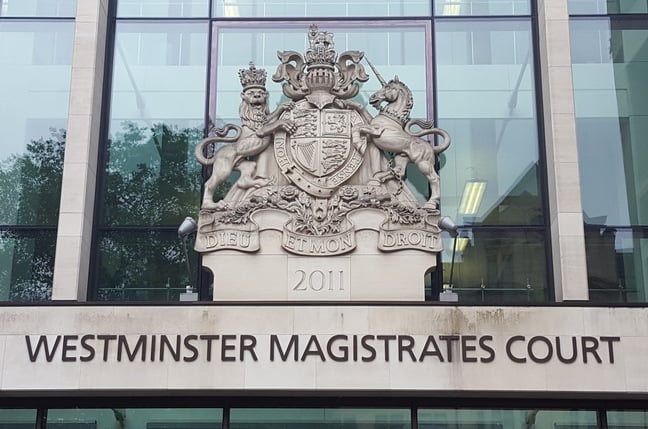Far-right leader walks free from court after conviction for refusing to hand his phone passcode over to police

The leader of far-right political group Britain First has been handed a judicial slap on the wrist after refusing to give his phone PIN to police at Heathrow Airport.
Paul Golding was arrested in October 2019 after accusing counter-terror police of abusing their powers to target him as he returned from a series of meetings with Russian politicians.
The 38-year-old was interrogated for nearly three hours, having been threatened with arrest if he did not voluntarily comply – only to be arrested at 1.43am the following morning when the interview ended, as reported by Court News UK.
He told police: “I don’t think think you have any grounds to suspect me of terrorism in any way, shape or form.”
Crown prosecutor Samuel Main told Westminster Magistrates’ Court on 19 May “the noises [Golding] made about abuses of power were a wilful attempt to camouflage his disobedience”.
PC Rory O’Connor, a borders constable with the Metropolitan Police, testified in court: “[Golding] asked if he was going to be detained and I told him yes and if he failed to co-operate he was potentially liable to be arrested.”
Golding had travelled to Russia to meet people from an organisation named in court as the Liberal Democratic Labour Party (SDLP) of Russia. He told police the party was “not liberal like the Lib Dems in the UK, they’re nationalist and right wing like Le Pen and Trump”. The Encyclopaedia Britannica lists it under its entry for neofascism and also described it as “ultranationalist and xenophobic”.
Britain First itself was formed by former members of the openly racist British National Party (BNP) and made a name for itself in the mid-2010s standing as an anti-Muslim political party. It made no electoral headway despite contesting a number of seats in various local and by-elections around the country.
When he gave a no-comment interview to police after his arrest, cops demanded the PIN to Golding’s phone. They did so under the controversial Schedule 7 of the Terrorism Act 2000. Schedule 7 allows police to demand passwords, PIN codes and so on to electronic devices, in a piece of legal interpretation trickery that criminalises anyone who “wilfully obstructs, or seeks to frustrate, a search or examination”.
Britain First’s leader refused to hand over his PIN, his barrister Abigail Bright told the court, because he was worried about giving police personal details of Britain First’s members.
The Chief Magistrate of England and Wales, Emma Arbuthnot, however, found that the interview was perfectly legal, as was the police demand for the PIN. Summing up the case, she said: “He did not say at any point he was not giving the PIN codes because of a concern for members. I find at the time of the stop he was warned over and over he would be committing an offence. He took a decision not to provide the PIN and I find this was a wilful obstruction.”
“In the circumstances,” concluded the judge, “the case is proved.”
Golding, of Hodder Bank, Stockport, denied but was convicted of failing to provide police with an accurate PIN and handed a nine-month conditional discharge.
Schedule 7 is a fertile ground for police wanting to score effortless criminal convictions against persons of interest to them. In 2017 a former British soldier who wanted to travel to the Middle East and join the fight against the Islamic State was convicted of the same “terrorism” offence as Golding in precisely the same circumstances. That same year a director of a controversial pressure group which described British Muslim terrorist “Jihadi John” as a “beautiful young man” was also convicted and fined of an offence under clause 18(1)(c) of Schedule 7.
Schedule 7 was also the law abused to target David Miranda, a courier for (and partner of) Snowden leaks journalist Glenn Greenwald. Miranda passed through Heathrow carrying Snowden-derived material and was forced to hand it all over to British police. Courts later held that part of Schedule 7 was incompatible with EU human rights law, though they did not uphold any other parts of Miranda’s legal complaints against the British State. ®
Sponsored: Ransomware has gone nuclear
READ MORE HERE
